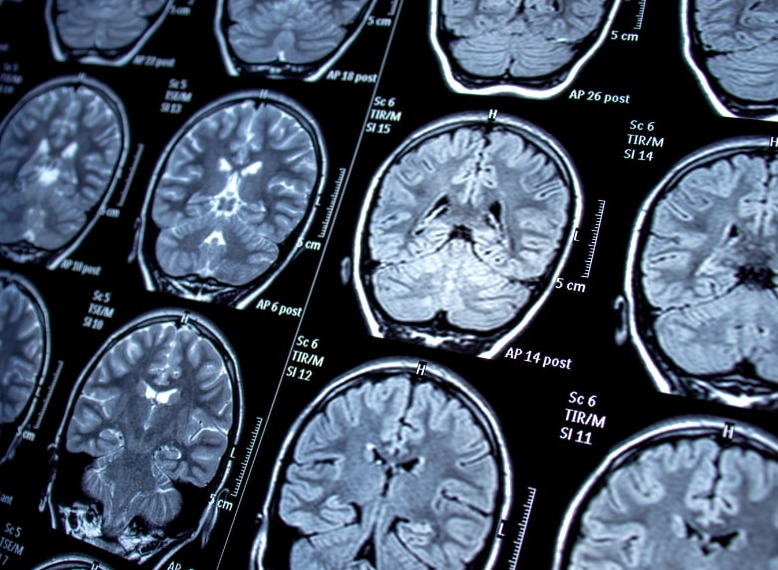- Home
- Forums
- Epilepsy Forum
- Research and useful tips - Epilepsy
- Life with epilepsy: seizures, driving and social anxiety
Patients Epilepsy
Life with epilepsy: seizures, driving and social anxiety
- 117 views
- 8 times supported
- 11 comments
All comments
Go to the last comment

BAZWHEAT
Good advisor
![]()
BAZWHEAT
Last activity on 16/12/2025 at 17:26
Joined in 2015
129 comments posted | 13 in the Epilepsy Forum
26 of their responses were helpful to members
Rewards
-
Good Advisor
-
Contributor
-
Committed
-
Explorer
-
Evaluator
-
Friend
People will identify people by one of their illnesses. He is an epileptic, NO HE IS NOT ! He is a PERSON with epilepsy. One never hears about a flu or a cold, they are always People with those conditions !
See the signature
bazwheat
Give your opinion
Members are also commenting on...
Articles to discover...
Medication fact sheets - patient opinions...
Subscribe
You wish to be notified of new comments
Your subscription has been taken into account








Margarita_k
Good advisor
Margarita_k
Last activity on 07/10/2020 at 11:39
Joined in 2016
1,195 comments posted | 30 in the Epilepsy Forum
2 of their responses were helpful to members
Rewards
Good Advisor
Contributor
Messenger
Committed
Explorer
Evaluator
The word « epilepsy » is familiar to a lot of people. However, not many of them are aware of what it really means, thinking that epilepsy necessarily includes violent convulsive seizures, foam coming from the mouth, etc.
The fact that there are almost 40 different types of epileptic seizures is far from being a well-known circumstance. And yet, it is true. People suffering with epilepsy can experience loss of consciousness, temporary memory loss, uncontrolled movements (picking up and placing back objects, for example), confusion, etc. Contrary to a popular belief, flickering lights only trigger seizures in 3% of people suffering with epilepsy.
The survey conducted among Carenity members suffering with epilepsy, confirms this alarming lack of understanding: 53% of the respondents claim that people are insufficiently informed about the disease, which often causes curiosity (21%) and condescending attitude (14%). No wonder that 14% of our members do not wish to talk to others about their condition.
Yet, silence is not always the best option, and that’s what the aim of the World Epilepsy Day is: to raise people’s awareness of the disease, so as to avoid all discrimination towards patients, and to give them the opportunity to lead a normal life and get help when needed.
Where does help come from?
Luckily, Carenity members have their families and friends who can take care of them and know what to do in case of emergency. Thus, for 64% of the respondents, this role is wonderfully performed by their spouses/partners; parents also know what to do (for 46% of the respondents), as well as siblings (35%) and children for older patients (39%). For half of our members who have completed the survey, friends are of great help as well, which is excellent news. Last but not least, 7% of the respondents mentioned their work colleagues and bosses as the ones that are ready to help if needed.
Accurate diagnosis
Epilepsy is usually diagnosed in childhood, or early adulthood, but the condition can also be detected in people 65 years of age and older. Among Carenity members who have completed the survey, 35% were diagnosed as children before the age of 11, and 25% - between the age of 11 and 20. Only 7% of the respondents received their diagnosis at the age of 40 and older.
Epilepsy can sometimes be mistaken for another condition, but all of our members were diagnosed accurately and no error was made regarding their condition.
Seizures
Only 14% of our respondents are seizure-free, and all of our respondents have experienced difficult seizure-related moments throughout their life with epilepsy, which they remember quite well, as they have caused injuries (“I had a seizure whilst making a hot drink. Instead of the boiling water going into the cup, I poured it down my stomach, leaving a scar”; “multiple fractures in my shoulder following a seizure!”) or long periods of unconsciousness (“I had a seizure which left me unconscious for 3 days”), but also loss of employment (“At an interview being told I was a liability to be in the shop, after they assured us at a meeting they were not prejudice”), and fear (“Feeling like I’m reliving a bad dream”).
How does epilepsy impact everyday life of patients?
Driving is the biggest concern for people suffering with epilepsy. Thus, only 25% of the members who have participated in the survey, confirmed that they have a driving licence. Other 75% have never driven in their life (mostly those who were diagnosed at an early age), or have been struggling to get a licence, as they are not seizure-free: “Could not get a licence due to never been free from seizures..” According to the British law, the drivers licence can be attributed to a person suffering with epilepsy, if they can prove that they represent no danger for other people on the road. This means that a special commission, DVLA, must look into the patient’s medical history and decide whether they are able to drive or not. Usually, one should be seizure and medication free for 12 months, in order to get a licence. However, this period can vary, depending on the type, the frequency of the seizures, and the type of vehicle the person wants to drive: bus drivers, for example, have to be seizure-free for 10 years in order to get permission to drive.
A lot of the members are well aware of the danger they may represent on the road and do not wish to drive: “My licence wasn't taken away, but I agreed with my GP not to drive. I would rather not drive than risk the lives of others!”; “I've never had a licence as I don't have warning before seizures and the thought of having a seizure and putting others at risk scares me”.
Apart from driving, there are many activities that epileptic patients have had to give up (in 75% of cases), such as swimming alone, taking a shower/bath with no one in the house, going to discos, concerts, theatres, drinking alcohol, cooking, working full-time, riding a bike, etc. Some cannot even go out alone, as they are “scared of what would happen to me if I had a seizure and nobody knew what it was”: “I don't really like going place on my own cuz I don't know when I going to have a seizure. I get scared some time special when places are packed like shop”.
71% of the members don’t do any sport due to their epilepsy. Those who do (28%), enjoy mostly yoga, swimming, going to the gym, walking, but also “less common” activities, like bowling, curling, table tennis, golf, ice hockey, etc. Patients who maintain physical activities, notice that they have a positive effect on their health: “Going to the gym and going out for walks improves my wellbeing.” “Since doing more physical exercise, my seizures have lessened”.
In regards to their private life, the respondents estimate the impact of epilepsy to be non-existent (21%), low (50%) and from moderate to considerable (17%), with only 10% estimating the impact to be strong. But as far as professional life is concerned, patients feel the impact to be of a greater significance: 42% think that their disease has influenced their life considerably (42%), and 14% claim that the impact has been huge. Still, 42% of the respondents have mentioned they felt no impact at all or only a minor one.
Socialising is something that makes everyday life of people with epilepsy difficult, as they can be scared of having a seizure in a public place (like a restaurant), which provokes stress and anxiety and does not facilitate daily interactions with people. For example: “I cannot drive, I am restricted socially as many activities are inaccessible using public transport. I feel socially isolated.”, or “I (try to) avoid stress. I don't 'put myself out there because of the stress. And I worry about getting tired. I worry about socialising i.e. drinking and big social events.”, or “I don't like been in my own due to been scared. I don't walk many places alone I only ever go on bus if my mum's ill”.
All in all, Carenity members feel that epilepsy has influenced their social and professional life considerably, limiting their freedom and making it difficult to stay active. Nevertheless, most of them accept the illness and get a lot of help from their families and friends, and some enjoy physical activities which make them feel healthier. Carenity can be of use for those who find it hard to socialise outside their homes, as it gives them the opportunity to feel less alone and better understood while interacting with people who are in the same situation.
So don’t hesitate to continue the wonderful job of supporting each other and sharing advice, and also spreading the word about epilepsy, so that fewer people will be "unaware what to do".